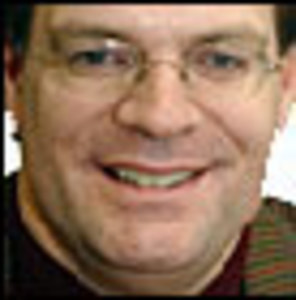With the U.S. election campaign promising to be as exciting as ever, plus the prospect of a federal election in Canada and a provincial election in Quebec, 2008 is shaping up to be for political junkies what an Olympic year is for sports enthusiasts.
And like sports fans, political junkies can't get enough comment and analysis. Political scientists like me are happy to oblige.
The problem is that politics is in large measure an "art," and the objective "science" of politics often seems at a loss to explain – let alone predict – what's going on.
Or so it seems.
Last week, for example, the "scientific" pollsters were way off the mark in the New Hampshire primary, which was supposed to be won handily by Barack Obama. Many commentators attributed Hillary Clinton's surprise success to (choose your preference) a genuine display of emotion or a brilliant piece of acting.
Score one for the art of politics.
As Machiavelli explained 500 years ago, a large part of political success depends upon a set of skills – he called it virtú – that defies objectivity. Whether Clinton's performance was genuine or not, her appeal to the emotions managed to win back voters who had been swayed by Obama's own emotional appeal.
In Canadian politics, we can also find situations that seem to defy objective analysis.
Take, for example, Prime Minister Stephen Harper's success in transforming his empty and ambiguous recognition of the Québécois as a nation into valuable political capital in Quebec. Through the careful manipulation of symbols, the Prime Minister seems to think he can achieve the durable alliance of Quebec and the West that eluded his Conservative predecessor Brian Mulroney.
That's artful, but is it a solid basis for predicting the future? Not if we also give some credence to the objective reality behind the rhetoric.
When Harper met with the premiers last week, it became clear that the hard economic reality that pits the interests of the West against those of Quebec (and Ontario) may be enough to untie the symbolic bonds of his coalition.
No matter the amount of rhetoric around it, the Prime Minister's plan won't fly in provinces where the forest and the manufacturing sectors are hardest hit by the loonie's current strength.
Between the fluffy promises of "open federalism" and the hard reality of his province's core objective economic interests, Jean Charest made what most political scientists would call the obvious choice.
When it comes to building lasting coalitions, the objective bases of interests tend to trump the artful display of political craftsmanship.
Score one for the science of politics.
Even in the dramatic theatre that is the U.S. presidential election campaign, the outcome of November's vote is likely to depend on factors that can be observed early in the game.
To illustrate this point, every four years election forecasters stage a friendly competition at the meeting of the American Political Science Association to compare prediction models, some of which are based on data collected up to nine months before the vote.
In 2004, due largely to a "manufactured" short-term economic upswing, most models accurately predicted George W. Bush's victory.
This year, widespread economic uncertainty, the anemic performance of the economy as a whole, and the obvious failure of the Republican administration's Iraq policy likely will do more to determine the outcome in favour of the Democratic candidate than anything that happens during the campaign.
Does that mean that campaigns don't matter?
Again, political science has an answer: Of course they matter, particularly in the primaries.
Indeed, campaigns matter so much that those who run them rely on ever more sophisticated tools and methods to understand every little segment of the electorate, target messages with pinpoint accuracy, and make sure their partisans vote.
Models that predict the two-party election's outcome months in advance essentially assume that the parties' campaigns will cancel each other out, and that objective conditions will ultimately prevail, barring major mishaps on either side.
In the primaries, where opponents court electors with broadly similar interests, the candidate's personal qualities and political craftsmanship matter a great deal, but in the end the capacity to win more often depends on that most objective yardstick – money.
In Canada, both overall economic conditions and party finances should work in favour of the governing party, but the uneven distribution of these benefits coupled with the inherent instability of the Quebec-West coalition are the Conservatives' Achilles heel.
In the end, to explain or predict political outcomes, the science of politics is what we need.
But what would be the point of watching the Olympics if not to appreciate the artistry of the athlete's motion or the drama of a close contest?
***
Pierre Martin is a professor of political science and director of the chair in American Political and Economic Studies at the Université de Montréal. This winter, he is a visiting scholar at the Wilson Center's Canada Institute in Washington, D.C.
- source
Political prognostication combines art and science
Primaires américaines 2008

Pierre Martin50 articles
Pierre Martin est professeur titulaire au Département de science politique de l’Université de Montréal et directeur de la Chaire d’études politiques et économiques américaines (CÉPÉA). Il est également membre du Groupe d’étude et de recherche sur la sécuri...
Cliquer ici pour plus d'information
Pierre Martin est professeur titulaire au Département de science politique de l’Université de Montréal et directeur de la Chaire d’études politiques et économiques américaines (CÉPÉA). Il est également membre du Groupe d’étude et de recherche sur la sécurité internationale (GERSI)




























Laissez un commentaire Votre adresse courriel ne sera pas publiée.
Veuillez vous connecter afin de laisser un commentaire.
Aucun commentaire trouvé